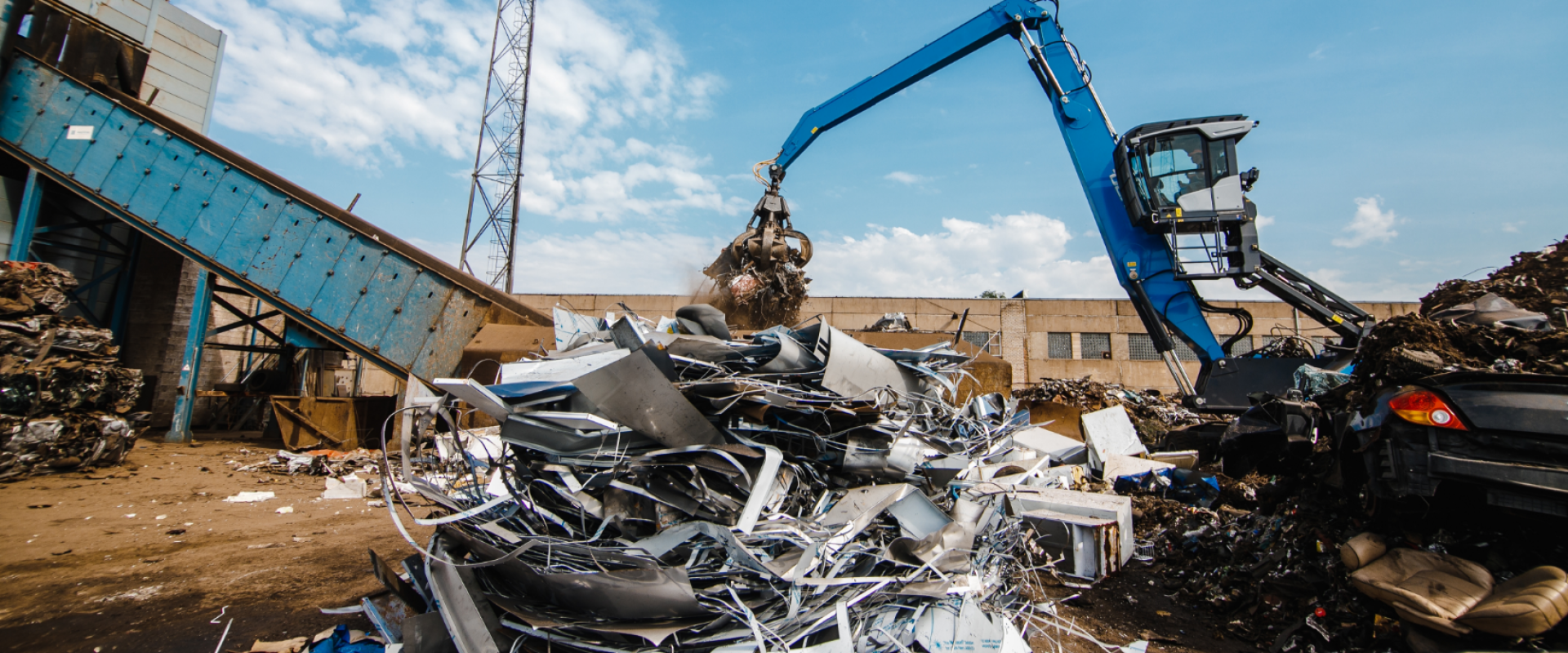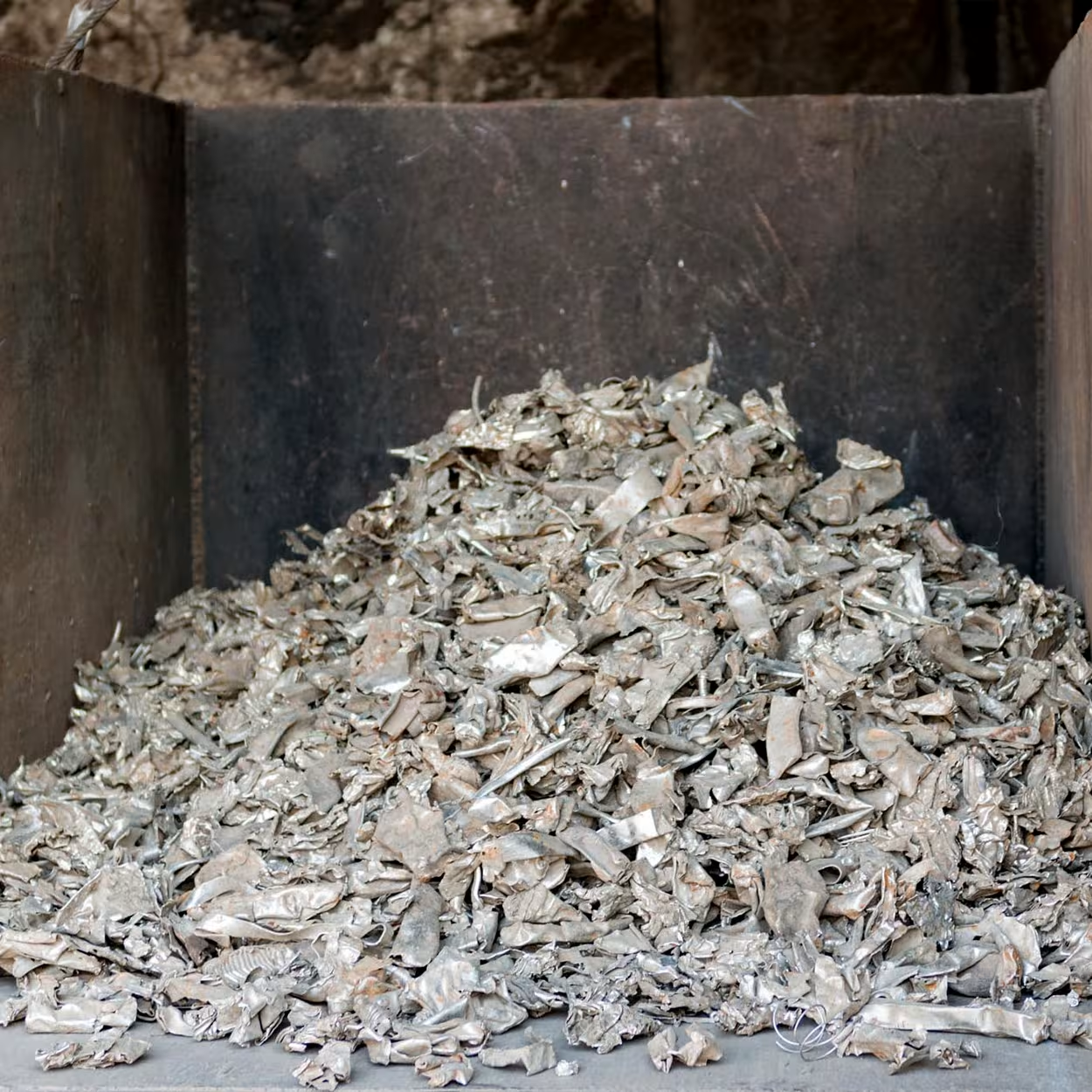Strategic Investment in Thailand Scrap Yard Ensures Reliable & Cost-Effective Supply
JSL Global made a targeted investment in a strategically-located stainless steel (SS) scrap yard in Thailand to meet the specific needs of our customers, thereby ensuring a reliable, cost-efficient, and timely supply of SS scrap and minimising exposure to market volatility.

Indian businesses buying stainless steel scrap face significant challenges due to volatile market conditions. JSL Global recognises this challenge and is making strategic investment decisions that go a long way in creating a more reliable and cost-efficient supply chain for our customers.
The Challenge: Volatile Scrap Supply and Market Fluctuations
Global SS scrap prices can fluctuate by as much as 20-30% in a single quarter, driven by factors such as raw material shortages, geopolitical tensions, and shifts in demand. Supply chain disruptions add further instability, with lead times for stainless steel production increasing by up to 40% during peak disruptions.
These dynamics hinder companies’ ability to maintain stable production timelines and lead to cost unpredictability, ultimately impacting profitability. It’s estimated that such fluctuations contribute to a 15-20% increase in operating costs annually, posing a substantial risk to the industry’s competitiveness (Fastmarkets)(Argus Media)(MEPS International).
Our Indian business customer faced an inconsistent supply of SS scrap, a critical low-cost input for SS production. The reliance on unstable market conditions caused price fluctuations and supply chain disruptions, affecting production timelines and cost predictability. The need for a steady, reliable source of SS scrap became a strategic priority for both operational efficiency and financial stability.
The Solution: Strategic Investment in Thailand Scrap Yard
To address this challenge, JSL Global made a targeted investment in a strategically located SS scrap yard in Thailand. With a capacity of 13,000 tons, this facility was designed to meet the specific needs of our Indian customers, offering a reliable and timely supply of stainless steel scrap.
Being geographically close to India, the Thailand scrap yard reduces transportation costs and minimises exposure to market volatility. Furthermore, favourable trade relations between Thailand and India, particularly regarding tax and duty implications, added to the efficiency and cost-effectiveness of this initiative.
This investment covered various grades of stainless steel scrap, including 304, 316, 17-4, 18-8, and 304L, ensuring that our customer had access to the right materials for their specific industrial applications.
Our investment in the scrap yard in Thailand, covering various grades of stainless steel scrap such as 304, 316, 17-4, 18-8, and 304L, offers significant utility for our customers. Each of these grades has distinct properties that make them valuable for different applications in the manufacturing process:
• Grade 304: One of the most commonly recycled grades, 304 stainless steel is known for its excellent corrosion resistance, making it ideal for general applications like kitchen equipment, automotive parts, and architectural structures. It’s widely used due to its durability and high availability in the scrap market.
• Grade 316: This stainless steel contains molybdenum, which enhances its resistance to corrosion in harsher environments, such as marine, chemical, and medical industries. Recycled 316 stainless steel is valuable for businesses looking to produce high-quality products that require extra protection against chemicals and saltwater.
• Grade 17-4: A precipitation-hardened stainless steel, 17-4 offers high strength and corrosion resistance. It is frequently used in aerospace and petrochemical applications, where components need both toughness and resistance to extreme conditions.
• Grade 18-8: This is an alternative to 304 but with slightly better corrosion resistance due to its specific composition. It’s frequently used in the food and beverage industry, as well as for construction materials.
• Grade 304L: A low-carbon version of 304, this grade is used in welding-heavy applications. The lower carbon content reduces the risk of carbide precipitation, which helps in applications requiring higher heat resistance.
This broad range of grades offers flexibility and reliability to our customers allowing them to choose high-quality recycled materials based on cost-efficiency, corrosion resistance, or strength. This also supports these businesses in reducing their environmental footprint by utilising recycled stainless steel, which requires significantly less energy to process than producing new steel from raw materials.
The Impact: Stability, Cost Efficiency, and Optimised Supply Chain

Our strategic investment in Thailand resulted in several key benefits for our customers:
Ensured a continuous flow of high-quality stainless steel scrap, reducing reliance on fluctuating external markets.
By mitigating price fluctuations, our partners saw more predictable costs, allowing for better financial planning and profitability.
The proximity of the scrap yard to India enhanced the efficiency of deliveries, reducing delays and improving production timelines.
With SS scrap, customers not only benefit from cost savings and reliable material supply but also actively participate in reducing their environmental footprint.
• Energy Savings: Recycling stainless steel scrap requires significantly less energy compared to producing new stainless steel from raw materials. For instance, using recycled steel can save up to 60-70% of the energy required for primary steel production. This energy efficiency directly reduces greenhouse gas emissions, contributing to lower carbon footprints for businesses using recycled materials (Argus Media).
• Reduction in Raw Material Demand: Stainless steel contains nickel, chromium, and other metals that must be mined, which has substantial environmental impacts. By recycling stainless steel scrap, businesses help reduce the need for new mining operations. It is estimated that every ton of recycled steel saves 1.5 tons of iron ore, 0.5 tons of coal, and 120 pounds of limestone (MEPS International). This reduces the strain on natural resources and helps maintain ecological balance.
• Lower CO2 Emissions: Recycling stainless steel reduces carbon dioxide emissions compared to new steel production. According to industry data, using recycled stainless steel can reduce CO2 emissions by up to 58% compared to producing virgin stainless steel (Argus Media). This significant reduction helps businesses meet their sustainability goals and comply with stricter environmental regulations.
• Waste Reduction: Recycling stainless steel scrap helps divert waste from landfills, contributing to a circular economy. Globally, about 85-90% of stainless steel is recovered and recycled, making it one of the most recycled materials in the world (MEPS International). This high recovery rate helps reduce the overall waste generated by industries, contributing to cleaner and more sustainable operations.
At JSLGC, our investments in strategically located SS scrap yards ensure cost-effective, reliable and timely access to SS scrap for our customers, and our valuable partnerships across the industry enable businesses to meet global sustainability standards and contribute to long-term environmental goals.
